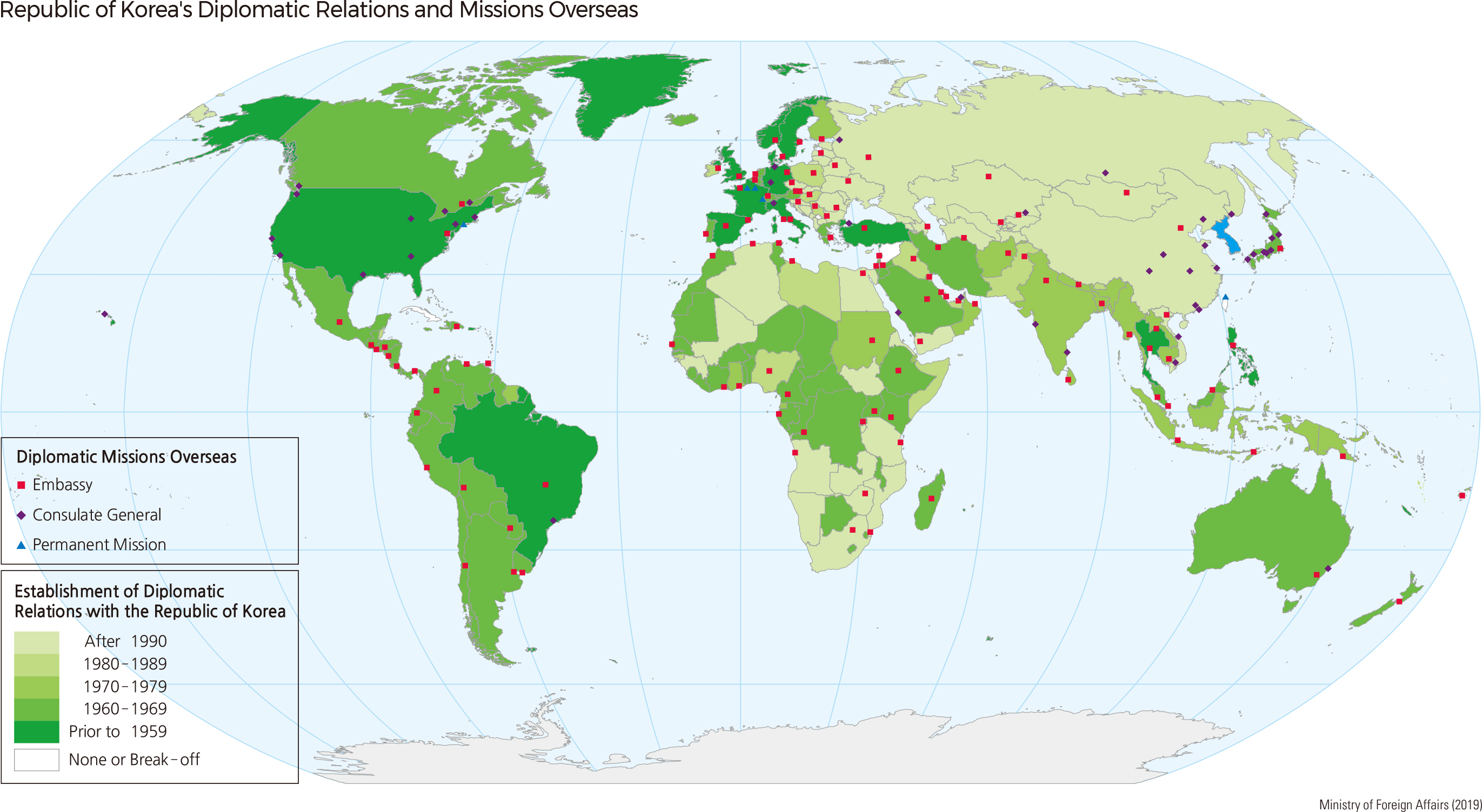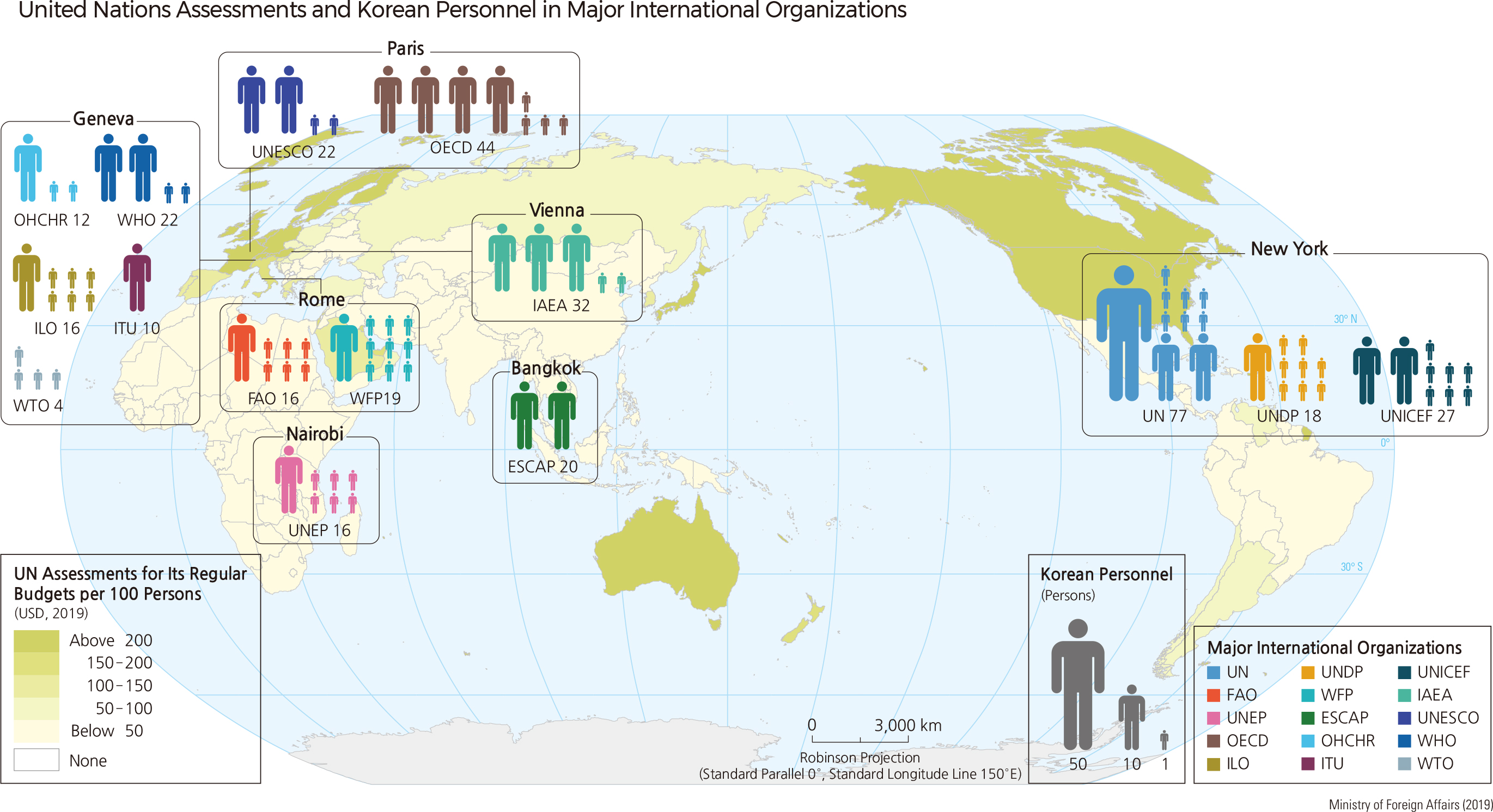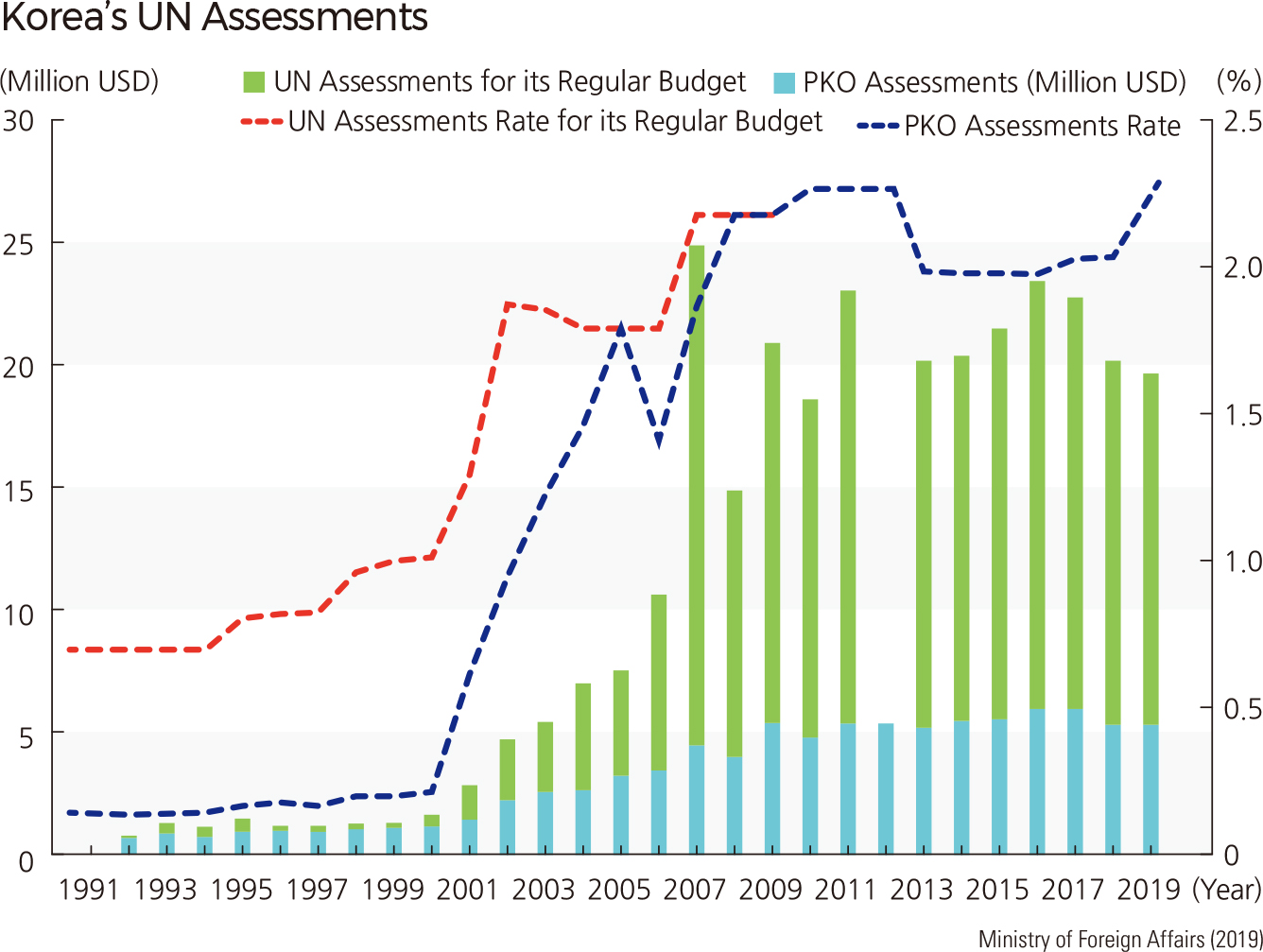Comprehensive Edition 2022
Korea has become a key player on the world political stage, demonstrating a commitment to being an active and engaged member of the international community. With rapid globalization, the 21st century has presented a number of challenges to countries around the world, including political, economic, and cultural issues. Korea has risen to these challenges on many fronts, both at home and in its relationships with other nations. This has included expanding diplomatic ties with other countries and promoting important treaties, as well as maintaining embassies, missions, and consulate generals in countries across the globe.
The Korean government manages 115 embassies, five permanent missions, and 46 consulate generals in 191 countries. Embassies are set up in the capitals of countries with whom Korea has established diplomatic relations. Permanent missions are set up within international organizations that Korea joins. Consulate generals are opened wherever a large number of Koreans reside overseas. Many consulate generals are located in North America and Asia, due to close relationships with countries such as the US, Japan, and China, as well as the presence of large Korean populations in these regions.
The Korean government has also successfully developed bilateral and regional FTAs to complement the existing multinational trading system. These FTAs have allowed Korea to mitigate the economic challenges presented by an unbalanced domestic distribution of wealth and population, as well as the stark realities of an aging populace and an overall low birth rate.
In addition to expanding diplomatic efforts, Korea has played an active role in international organizations headquartered in foreign cities. This has included the United Nations, the International Atomic Energy Agency (IAEA), the Organization for Economic Cooperation and Development (OECD), and the World Health Organization (WHO), among others. Korea contributes to the UN Regular Budget to fund peacekeeping, human rights, economic development, and environmental protection efforts. Korea has also participated in UN Peacekeeping Operations, working to resolve disputes around the world and protect human rights. As of 2019, 580 Korean peacekeeping forces were deployed to seven different missions: 284 in Lebanon, 285 in South Sudan, seven in India and Pakistan, three in Western Sahara, and one in Sudan’s Darfur. They serve in stability operations, truce supervision, and rebuilding. Korea has also provided financial and logistical support for these efforts. |





